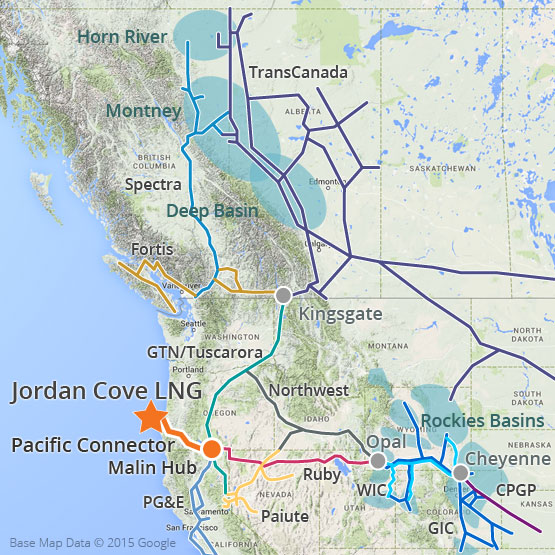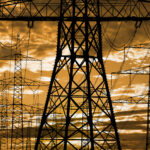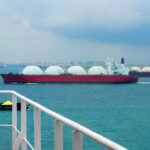FERC approves the first West Coast LNG Export Facility
The Federal Energy Regulatory Commission (FERC) gave its final environmental approval for the Jordan Cove LNG project and the Pacific Connector Gas Pipeline in Oregon, according to a FERC release. The project is the first liquefied natural gas terminal on the West Coast, and will deliver natural gas produced in the Rocky Mountains to markets in Asia.
The $7 billion project is led by Alberta based Veresen (ticker: VSN). The company saw the approval of the environmental impact assessment (EIS) as extremely positive news for the project.
“Receipt of our final EIS demonstrates our strong progress on the permitting front and paves the way for Jordan Cove LNG to be the first LNG export facility to be built on the west coast,” added Elizabeth Spomer, President and CEO of Jordan Cove LNG in a press release. “This regulatory milestone will be viewed as great news by our target customers.”
Final overall approval is expected by the end of this year, with a notice to proceed from the commission by the middle of next year. Developers have said gas is not likely to begin flowing until 2019.
The projects were initially envisioned for importing natural gas into the U.S., but development of gas deposits in the Rockies created an abundance of the fuel that pushed the projects to switch to exports.
Impacts will need to be reduced
While the FERC did give its final environmental approval, it did say the projects would result in some limited adverse environmental impacts, but these would be reduced to less-than-significant levels with the implementation of Jordan Cove’s proposed mitigation measures.







